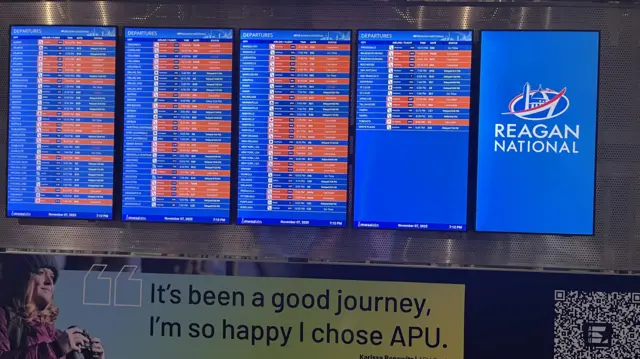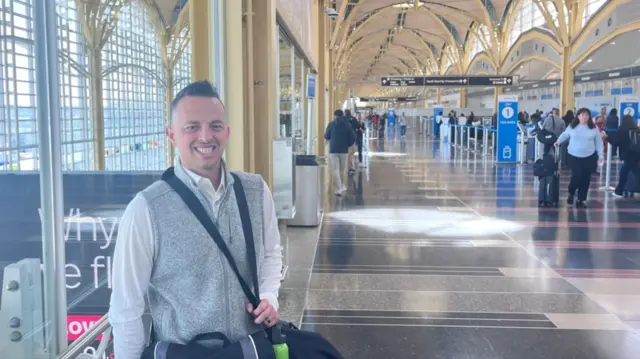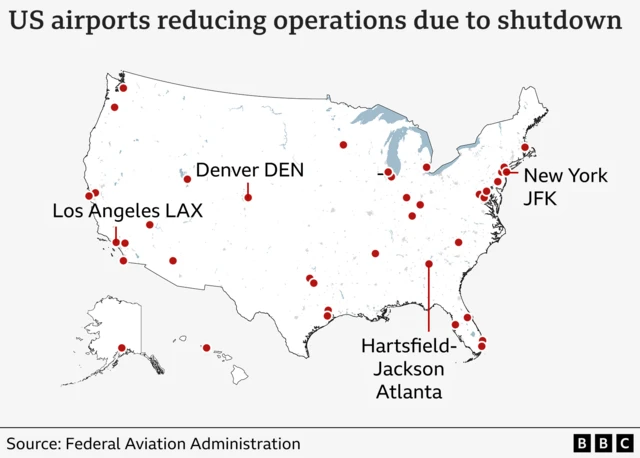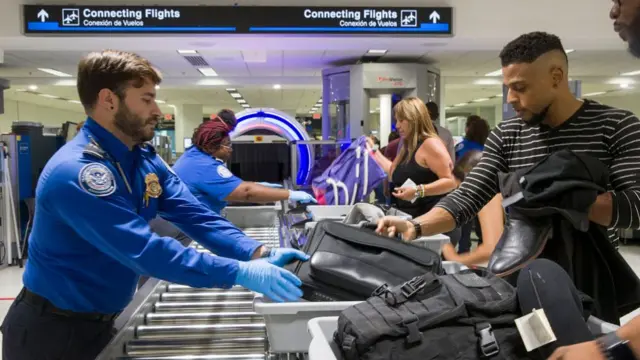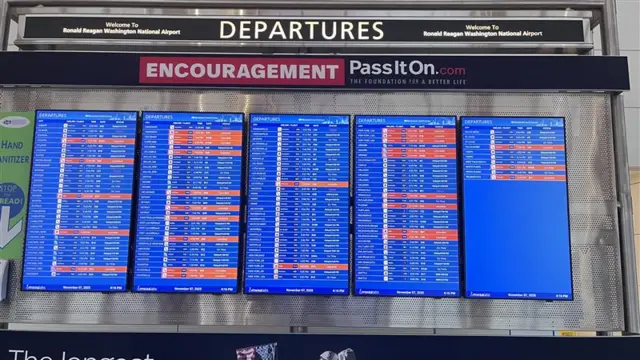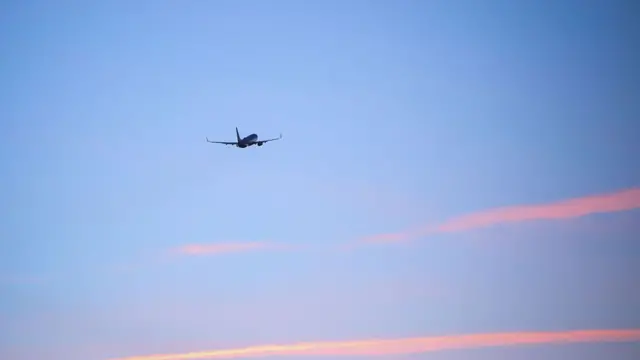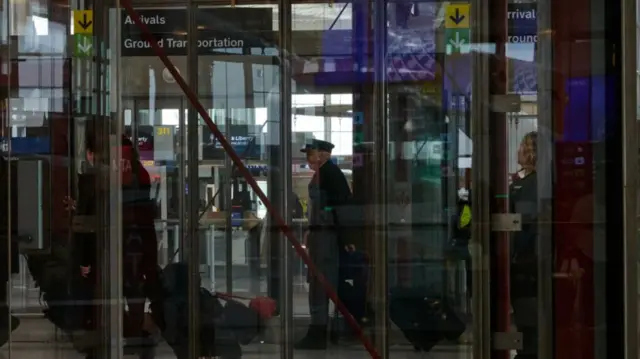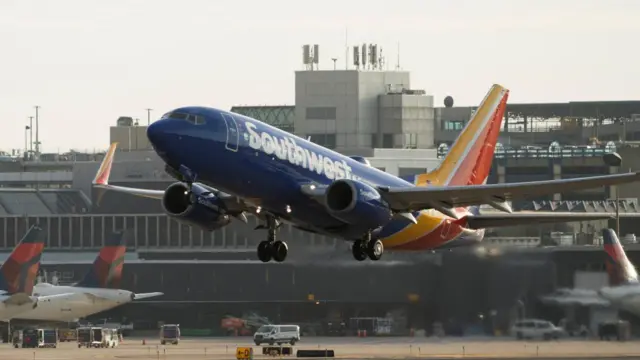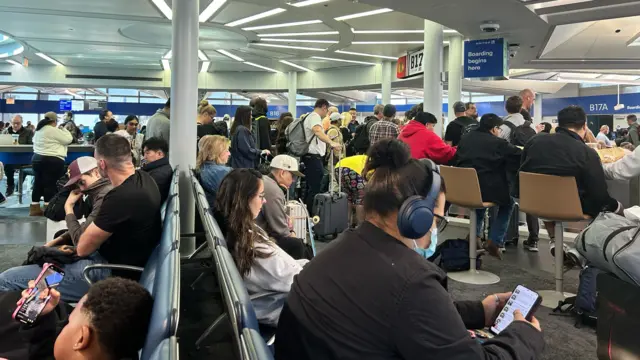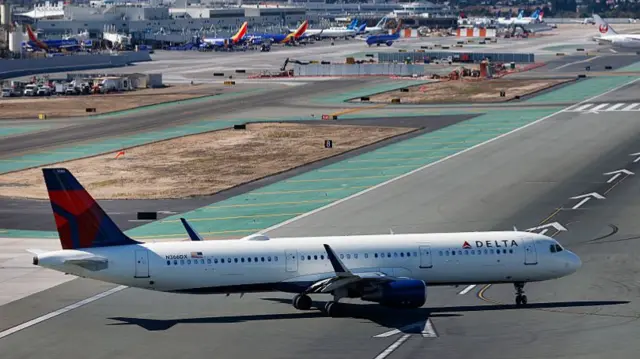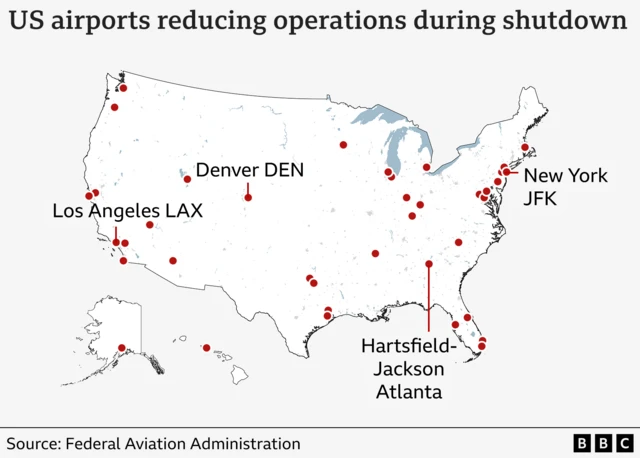LAX surprisingly calm as more than 1,000 flights cancelled throughout the USpublished at 01:12 GMT 8 November
 Blanca Estrada
Blanca Estrada
Reporting from Los Angeles International Airport
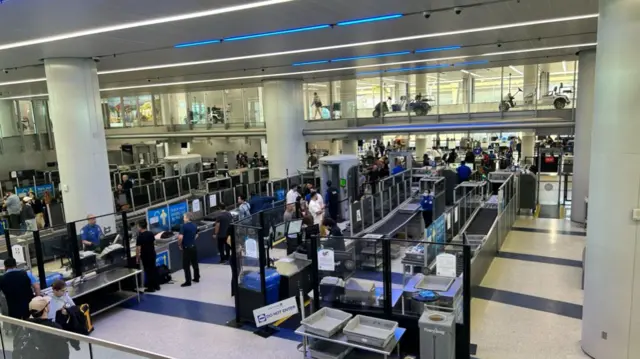 Image source, BBC / Blanca Estrada
Image source, BBC / Blanca EstradaAfter witnessing mounting delays at the airport in Chicago, I've arrived at Los Angeles International Airport in California.
Upon landing, the pilots on my flight announced that our plane would need to wait briefly on the runway, as no gates were available for incoming flights. After the announcement, a wave of anticipation spread through the cabin as passengers grew eager to finally step out off the plane.
When I disembarked, I was expecting to see crowds of people waiting by their respective gates, and long lines for security, especially since LAX was one of the 40 airports affected by the FAA's capacity cuts.
To my surprise, everything was calm and orderly. The TSA lines were regular, and the airport flow was much smoother than I anticipated.
Still, more snags are likely to develop in the coming days as the FAA's flight reduction directive remains in place and the Secretary of Transportation Sean Duffy warned earlier that the nation's flight capacity could be cut by up to 20% if the federal government shutdown continues for much longer.
After seeing nearly 5,500 delays and more than 1,000 cancellations at airports around the US today, we are pausing our live coverage of this story. But you can find out more about the federal government shutdown here: Why the US government has shut down and what happens now

